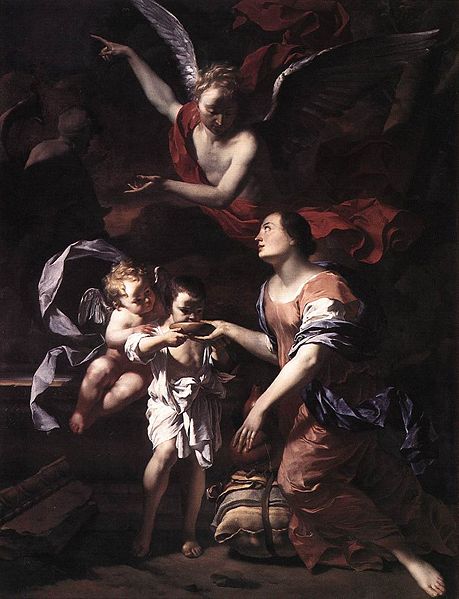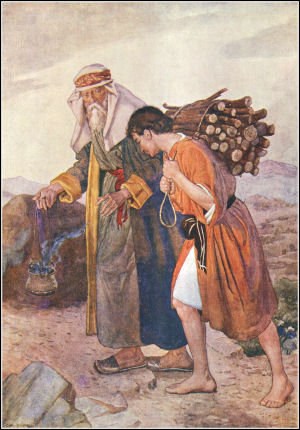 In seeking a worthy wife for Isaac, Eliezer also sought a woman worthy of the great blessing of God.
In seeking a worthy wife for Isaac, Eliezer also sought a woman worthy of the great blessing of God.Eliezer traveled northwards to Haran, Abraham’s ancestral home. In doing so he left his adopted home with the knowledge that what was once his anticipated inheritance, had since ceded to Isaac, Abraham’s sole heir and only son.
It now fell to Eliezer to honor his master and the oath that he had entered into regarding the search for Isaac’s wife. Although Eliezer was Egyptian and only a servant, his prayer speaks of the deep influence that Abraham had over his life. It suggests that the slave not only revered his master, he loved him.
So there was no conflict of interest for Eliezer, just a work to be faithfully executed. His prayer sought the prosperity of Jehovah God, the God of Abraham.
He set a test that Rebekah satisfied, but it is notable that his test looked for character. Eliezer not only heard Abraham’s words, he also understood the unspoken implications of his master’s instructions. He did not focus on beauty or outward appearances, but on the heart of the woman he would eventually lead back to Isaac’s tent.
Rebekah had nothing to gain or lose by being gracious, she just did what came naturally in showing kindness to a weary traveler. It was hard work too, for she had to walk down into the well and bring up enough water for Eliezer and his camels. But she did it all cheerfully, showing a pure heart and a gracious spirit. But what he also saw in her was determination, a resolute heart that would see things though.
Eliezer knew what kind of life she would face back in Mamre and I think he perceived certain weaknesses in Isaac. It was important to him, his master and to the great God who directed his way, that Isaac’s wife should be strong. The thing that she and Isaac would have to steward was of priceless value. Eliezer had a sound concept of its value or at least respected its value to his master Abraham.
Compare Eliezer’s respect for Abraham’s inheritance with the disrespect shown by Esau, Isaac’s firstborn and preferred son to be – is it possible that Esau picked up some of his nonchalance from his own father? If so, could there be some validity to unspoken suggestions of weakness in Isaac?
Ever since Abel stepped up to his altar and intuitively did what was pleasing to God, there has been a pattern of people whom God called because they had that special heart, a sense of what was right. We can fake many things, even go to church and attend regular meetings or give to the poor, but relatively few of those who do such things actually strike a chord with God and walk in rhythm with Him.
Many get it right through the course of a long, hard walk with God, others never get it, but some like Rebekah, step up to the plate and do the right things in their very first response to God. This is really amazing given that this woman was so immersed in an ungodly, pagan culture.
I suggest that a first response is a good indicator of future responsiveness, which is why Eliezer read so much into Rebekah’s behavior. This challenges us to be always ready to respond to God whenever He should call us, because we are quite capable of missing Him and living with sad regrets: thus Jesus said, “Be always instant in season”.
(c) Peter Eleazar at www.bethelstone.com





No comments:
Post a Comment